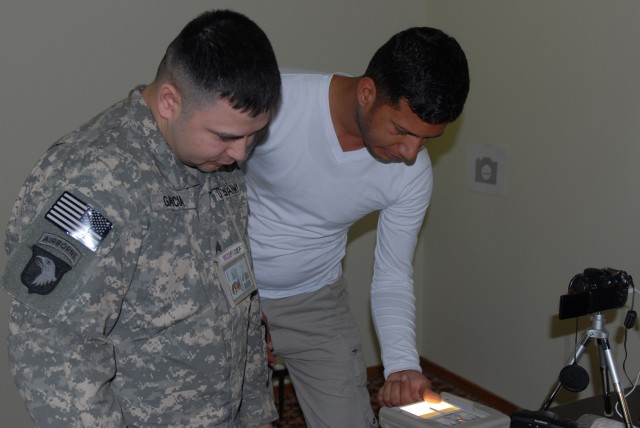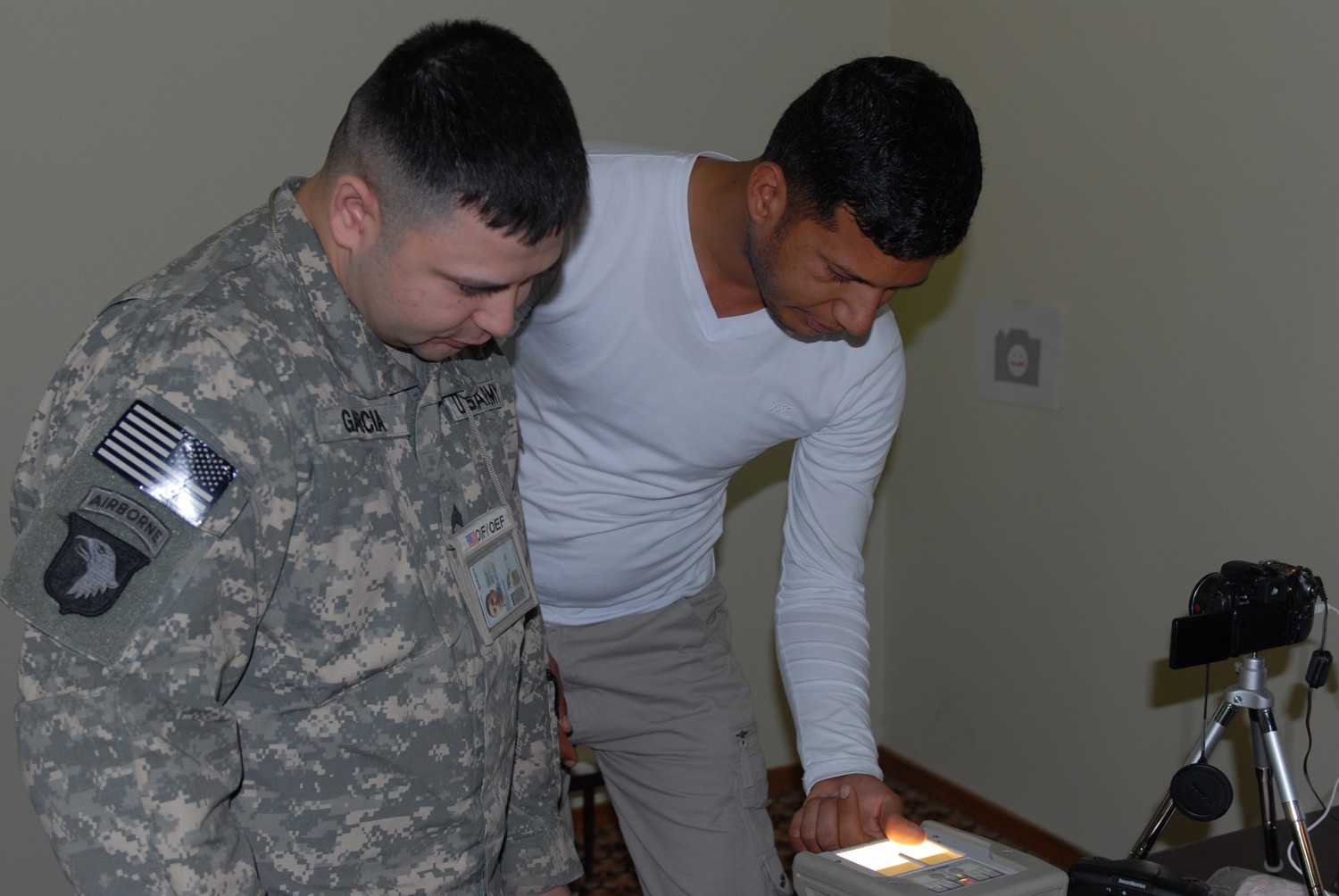
The Iraqi press' ability to report on United States Division-South was aided recently, thanks to a helping hand from U.S. Army public affairs representatives.
Area journalists were invited to Basrah International Airport Feb. 13, 2010, to reestablish relations with the U.S. military - relations that had been strained for at least the last year.
Security measures at Contingency Operating Base Basra that are meant to protect the base's community from possible threats also hampered the journalists' ability to pursue stories on base and in surrounding areas.
To aide them, a public affairs team met with 29 journalists to expedite a badge process that will provide the local press more freedom.
Maj. Edward McCray, deputy director of the Combined Press Information Center in Baghdad, said every day his staff validates a dozen Western, Iraqi and foreign journalists, but only in their Baghdad office.
However, after acquiring a second credentialing kit, the CPIC team, part of the 318th Press Camp Headquarters, an Army Reserve unit based in Forest Park, Ill., now is able to take their skills on the road. Their first stop happened to be BIA.
"This is our test run," McCray said.
Staff Sgt. Steven Garcia, a CPIC team member, said that, whether it's the center's Baghdad office or somewhere else, all media representatives must go through a Biometric screening.
Upon completing background paperwork, each journalist is checked out using the Biometrics system, which involves an iris scan, fingerprints and facial photos from different angles.
Garcia, a native of Benton, Ark., said the CPIC team will go back to Baghdad and process the individual credentials after each applicant's personal information is checked by investigative agencies in the United States.
He said that, once issued, the badges allow press members to embed with military units and attend military conferences.
Of the 29 applicants, the team validated 20 Iraqi journalists from newspapers and television stations located in various places, including Baghdad.
Ali Khalf, a videographer with Al Arabiya TV, said that the invitation from 1st Infantry Division public affairs officials encouraged him to make the trip, primarily because of challenges he has faced in the past in gaining access to U.S. forces.
"We have had a difficult problem getting on [COB] Basra and this made it uncomfortable," Ali Khalf said.
He cited one particular instance last November during Ramadan, when he couldn't gain entrance to the base because he didn't possess certain credentials.
For now, Ali Khalf savors the opportunity to cover events involving USD-S as they unfold in the coming months, as the U.S. forces continue to drawdown.
"This will encourage more coverage of the American forces," he said.

Social Sharing